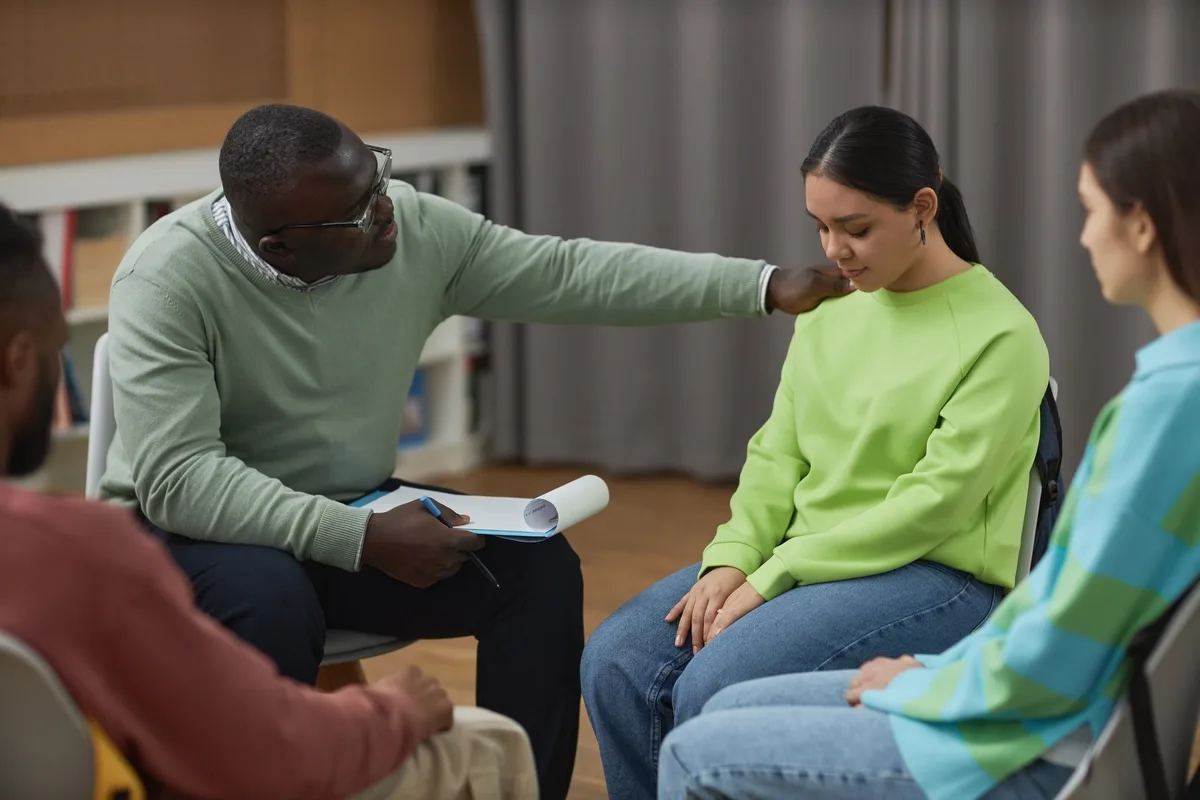24/7 Helpline:
(866) 899-221924/7 Helpline:
(866) 899-2219
Learn more about Klonopin Rehab centers in Port Angeles
Klonopin Rehab in Other Cities

Other Insurance Options

Absolute Total Care

BlueCross

Excellus

Lucent

Magellan

GEHA

Highmark

Choice Care Network

Regence

State Farm

CareFirst

Anthem

Private insurance

Access to Recovery (ATR) Voucher

BlueShield

Self-pay options

Kaiser Permanente

Evernorth

MVP Healthcare

Optum

Reflections Counseling Services
Reflections Counseling Services is a private rehab located in Port Angeles, Washington. Reflections ...

Peninsula Behavioral Health – Youth Services Center
Peninsula Behavioral Health – Youth Services Center is a private rehab located in Port Angeles, Wash...

American Behavioral Health Systems – ABHS
American Behavioral Health Systems (ABHS) offers comprehensive behavioral health care by providing c...

Peninsula Behavioral Health – Horizon Center
Peninsula Behavioral Health – Horizon Center is a private rehab located in Port Angeles, Washington....

Peninsula Behavioral Health
Peninsula Behavioral Health is a private rehab located in Port Angeles, Washington. Peninsula Behavi...





True Star Behavioral Health Services
True Star Behavioral Health Services is a public rehab located in Port Angeles, Washington. True Sta...

Klallam Counseling Services
Klallam Counseling Services is a public rehab located in Port Angeles, Washington. Klallam Counselin...

Cedar Grove Counseling
Cedar Grove Counseling is a private counseling clinic located in Port Angeles, WA. Cedar Grove Couns...

Trillium Treatment Center
Trillium Treatment Center is a private rehab located in Port Angeles, Washington. Trillium Treatment...

Peninsula Behavioral Health – Front Street Clinic
Peninsula Behavioral Health – Front Street Clinic is a private rehab located in Port Angeles, Washin...


